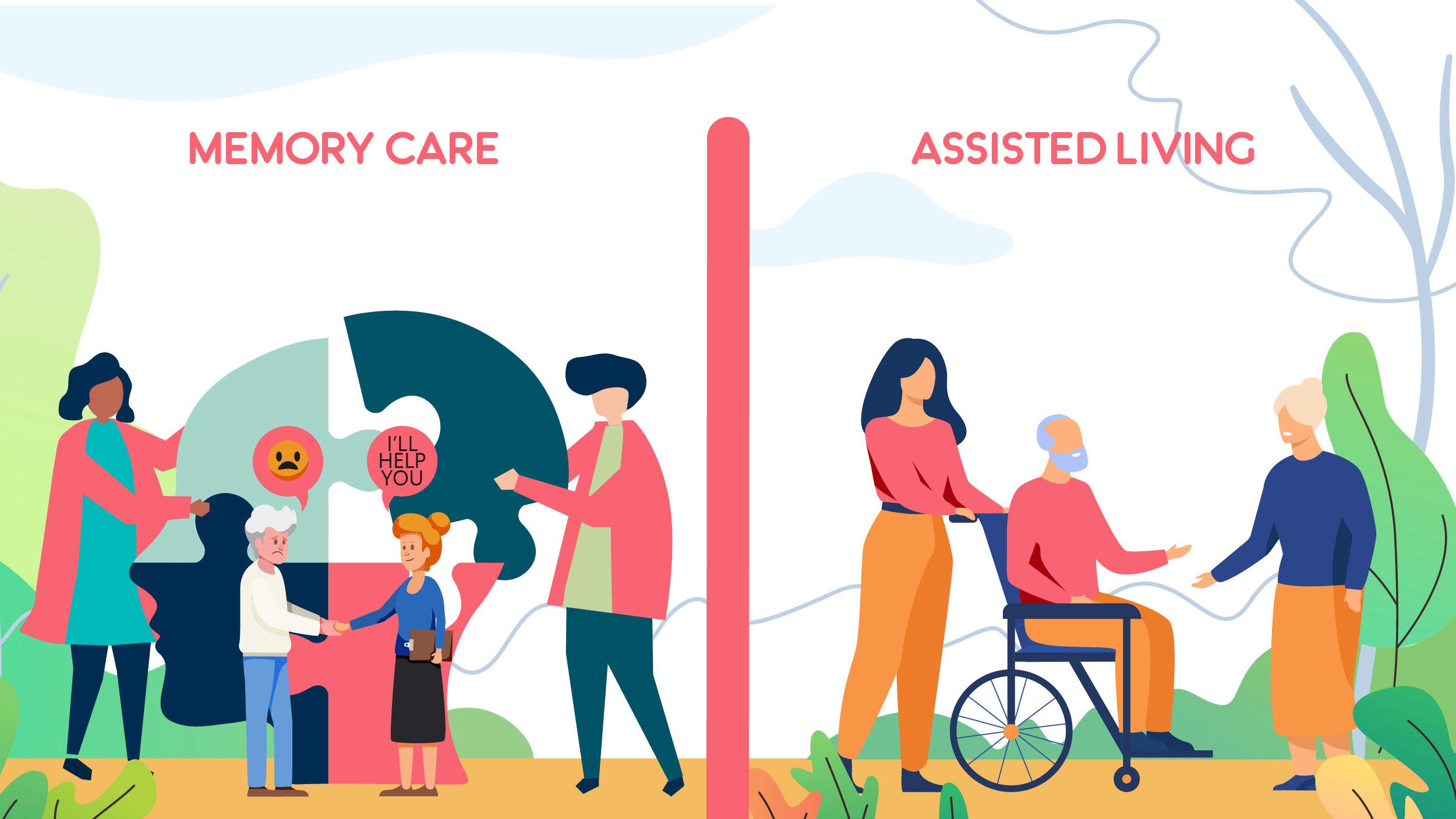Explore Charlotte Memory Care: Devoted to Elder Health and Wellness
Explore Charlotte Memory Care: Devoted to Elder Health and Wellness
Blog Article
Developing a Safe and Supportive Environment: In-Home Memory Care Essentials
Developing a caring and safe environment for individuals requiring in-home memory treatment is paramount to their health and lifestyle. From making certain safety within the living space to employing effective communication methods and carrying out memory-friendly style elements, there are important components that add to a holistic care approach. By concentrating on creating a supportive environment that accommodates the special demands of those with memory impairments, caregivers can considerably boost the everyday experiences of their loved ones.

Safe Living Setting
Developing a hazard-free and secure living setting is extremely important when providing at home memory treatment for people with cognitive disabilities. Ensuring the safety of the specific with memory loss is vital to protect against crashes and advertise a sense of wellness.
In addition, it is essential to install security functions such as grab bars in restrooms and handrails along stairs to give assistance and avoid crashes. Furthermore, using modern technology such as motion sensing units and alarms can inform caretakers if the specific wanders or remains in distress. Producing a safe living environment likewise entails executing methods to avoid roaming, such as utilizing door alarm systems or locks to limit accessibility to dangerous areas. By prioritizing precaution and getting rid of possible risks, caretakers can provide a helpful and safe atmosphere for people with cognitive impairments getting in-home memory care.
Reliable Interaction Methods
Carrying out tailored interaction strategies is essential in fostering meaningful communications with people with cognitive disabilities in the context of at home memory care. Efficient interaction plays an essential duty in creating a supportive environment that enhances the health and lifestyle for individuals with memory issues. When interacting with a person experiencing cognitive decrease, it is very important to use clear and straightforward language, keep a calm and favorable tone, and offer visual cues to assist understanding.
One trick approach is to practice energetic listening, showing compassion, persistence, and respect during conversations. Non-verbal hints such as face expressions and body language can also help share understanding and assistance. Additionally, making use of reminiscence treatment by using or discussing past experiences music and art can tap right into lasting memories, boosting and triggering links interaction.
Moreover, including regular routines and regular communication patterns can give a sense of familiarity and safety for individuals with memory disabilities. By implementing these communication approaches, caretakers can develop significant connections and promote a feeling of convenience and count on the in-home memory care setup.
Memory-Friendly Style
Provided the importance of creating a supportive environment for people with memory problems through reliable interaction techniques, the incorporation of memory-friendly layout elements in the home comes to be essential in maximizing their everyday experiences and overall health. Memory-friendly style concentrates on boosting security, convenience, and self-reliance for individuals with cognitive disabilities. Simple alterations can make a considerable distinction, such as utilizing contrasting shades to enhance presence and minimize complication, integrating clear signs to help navigating, and reducing mess to stop sensory overload.
Integrating acquainted components from the individual's past, such as favored items or individual pictures, can evoke favorable memories and produce a sense of familiarity. By integrating these memory-friendly layout aspects, caregivers can give a encouraging and safe living room that enables people with memory problems to maintain their self-reliance and quality of life. Charlotte Memory Care.
Daily Routine Preparation
When developing a day-to-day routine for individuals with memory issues, careful preparation is essential to support their cognitive feature and total well-being. Establishing a structured routine can help reduce anxiety, confusion, and disorientation commonly experienced by those with memory problems.
Versatility is vital, as some days may require adjustments based on the person's mood and power degrees. On a regular basis assessing and adjusting the daily see this site routine will assist ensure its efficiency in advertising a soothing and positive environment for people with memory challenges.
Support Group Implementation
Establishing a durable network of encouraging individuals plays a pivotal duty in improving the quality of treatment and wellness for people needing memory support. Member of the family, good friends, healthcare professionals, and area resources can all add to developing a solid assistance system. Interaction among these people is important to make sure that the demands of the individual with memory challenges are fulfilled successfully.
Family participants are commonly the primary caretakers and form the foundation of the support group. They supply daily treatment, emotional support, and friendship. It is important for member of the family to look Web Site for assistance and break when required to stop fatigue and guarantee the very best possible take care of their loved one.
In enhancement to family support, involving health care specialists such as registered nurses, medical professionals, and specialists can supply customized treatment and guidance. These professionals can provide useful understandings, clinical suggestions, and assistance in managing the individual's condition.

Final Thought
In final thought, producing a helpful and risk-free environment for individuals with memory care needs is important for their well-being. By establishing a safe living setting, making use of reliable interaction approaches, including memory-friendly style aspects, preparing daily routines, and implementing a solid assistance system, caretakers can assist improve the lifestyle for those with amnesia. These crucial parts function together to create a nurturing and encouraging setting that promotes independence and boosts general lifestyle.
Creating a secure and hazard-free living atmosphere is critical when providing at home memory care for individuals with cognitive problems. By prioritizing safety procedures and eliminating possible risks, caregivers can provide a supportive and safe and secure atmosphere for individuals with cognitive disabilities receiving in-home memory treatment.
Establishing a durable network of supportive people plays anchor a critical duty in improving the quality of treatment and well-being for people requiring memory support - Charlotte Memory Care. Interaction among these people is vital to ensure that the requirements of the specific with memory difficulties are fulfilled efficiently

Report this page